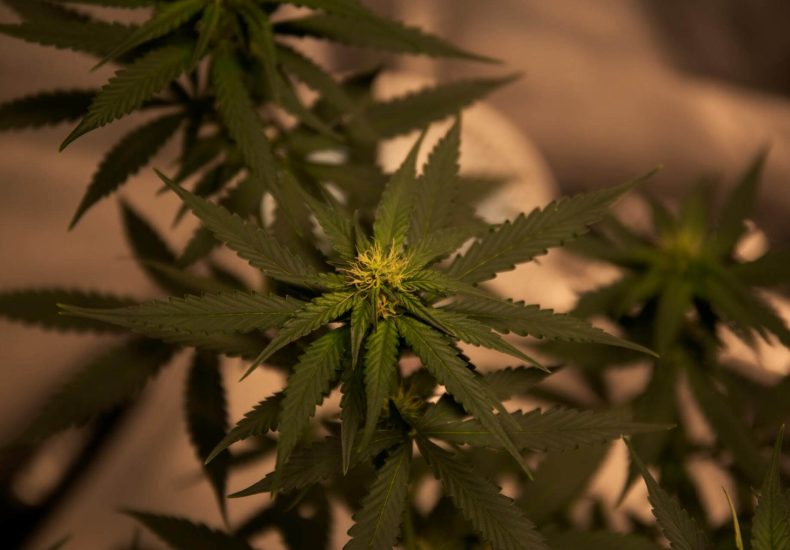 Cannabis
Cannabis
Table of Contents
You can’t beat a bit of cannabis therapy. Feeling stressed or anxious is part of life. Everyone faces moments when the worries and pressures seem too much to handle. Did you know that a growing number of people are turning to cannabis therapy as a way to manage stress and anxiety? Cannabis, with its unique compounds like THC and CBD, offers an alternative approach that many find helpful.
This article will explore how cannabis therapy can be used for stress and anxiety relief. We talk about different types of cannabis, what research says about its effects, and how it compares to traditional medications.
Plus, we share some best practices for those considering this method. Keep reading to discover if cannabis therapy could be right for you.

What is Cannabis Therapy?
Cannabis therapy involves using cannabis or its compounds to manage stress and anxiety. It includes various forms of cannabis, considered for their potential medicinal use and legal implications within the medical field.
Definition
Cannabis therapy refers to the medical use of cannabis or its components, such as THC and CBD, to treat symptoms of various conditions including stress, anxiety, depression, and PTSD.
This approach is a form of alternative medicine that taps into the natural compounds found in marijuana plants for their potential health benefits. The effectiveness of cannabis therapy depends on several factors including the type of strain used, levels of active ingredients, and individual patient needs.
Forms of cannabis utilized in therapy range from oils and tinctures to edibles and vaporized products. Each method delivers cannabinoids into the body differently, offering options for personalized treatment plans aimed at managing mental health issues like anxiety with cannabis or providing stress relief through medicinal marijuana.
Forms of cannabis used
Moving from the definition of cannabis therapy to the forms of cannabis used, it’s essential to understand the various options available. Cannabis can be consumed in different forms such as edibles, oils, tinctures, capsules, and topicals.
Each form offers unique benefits and effects that cater to individual preferences and needs. Understanding these forms and their differences is crucial for effective stress and anxiety management with cannabis therapy.
Legal considerations
Before delving into legal considerations, it’s crucial to understand the forms of cannabis used in therapy. When embarking on cannabis therapy for stress and anxiety management, it is essential to be aware of the legal implications surrounding its usage.
This particularly involves understanding the laws and regulations specific to medical marijuana and CBD products in your state or country. It is imperative to stay informed about the legality of purchasing, possessing, and using cannabis for therapeutic purposes as laws can vary widely depending on location.
Furthermore, familiarizing yourself with the potential legal risks can help ensure a safe and compliant approach to utilizing cannabis therapy for stress and anxiety management without encountering any legal issues.
How Cannabis Can Help Manage Stress and Anxiety
Cannabis can reduce stress and anxiety by interacting with the body’s endocannabinoid system, as supported by medical research. It offers an alternative to traditional medications for managing these conditions.
Medical research and evidence
Active research suggests that cannabis therapy may effectively manage stress and anxiety. Studies show that cannabinoids in cannabis interact with the body’s endocannabinoid system, potentially reducing symptoms of depression, PTSD, and stress-related disorders.
Furthermore, evidence indicates that CBD benefits mental health by mitigating anxiety symptoms. This growing body of research suggests promising potential for cannabis therapy as a holistic approach to managing stress and anxiety.
Moving on to “Interaction with the body’s endocannabinoid system”…
Interaction with the body’s endocannabinoid system
Transitioning from understanding the medical research and evidence supporting cannabis therapy, it’s crucial to delve into how cannabis interacts with the body’s endocannabinoid system.
The endocannabinoid system plays a pivotal role in regulating various physiological processes, including mood, stress response, and anxiety levels. When cannabinoids from cannabis are introduced into the body, they bind to cannabinoid receptors within this system, influencing its function and potentially alleviating symptoms of stress and anxiety.
This interaction provides valuable insight into how cannabis can impact mental health and suggests a potential avenue for managing these conditions through targeted treatment.
The interaction between cannabis and the endocannabinoid system has led to promising developments in utilizing marijuana as a therapeutic tool for addressing stress and anxiety-related disorders.
Comparison to traditional medications
Cannabis therapy offers a distinct alternative to traditional medications for managing stress and anxiety. Unlike some conventional treatments, cannabis can address both physical symptoms and psychological factors, providing relief with potentially fewer side effects.
The adaptability of cannabis therapy allows individuals to tailor their treatment plan according to their specific needs and preferences. In contrast to standardized pharmaceuticals, such as SSRIs or benzodiazepines, the wide range of available strains and consumption methods provide patients with more options for personalized care.
Moving forward to “Different Strains for Managing Stress and Anxiety”…
Different Strains for Managing Stress and Anxiety
Different strains of cannabis play a key role in managing stress and anxiety. To learn more, delve into the world of cannabis therapy for mental health support.
Indica vs. Sativa strains
Indica and Sativa strains are the two main types of cannabis, each with distinct effects. Indica is known for its relaxing and sedative qualities, making it suitable for managing stress and anxiety.
On the other hand, Sativa is associated with energizing and uplifting effects which can also help alleviate symptoms of stress or anxiety. It’s important to consider these differences when looking for the right strain to address your specific needs.
Moving on to “CBD vs. THC levels“….
CBD vs. THC levels
CBD and THC levels differ between cannabis strains, with CBD often associated with calming effects. Strains higher in CBD are commonly favored for managing stress or anxiety due to their potential to provide relaxation without the psychoactive high typically associated with THC.
On the other hand, THC-dominant strains may induce euphoria, which can potentially exacerbate anxiety in some individuals. Understanding the balance of CBD and THC levels within different strains is crucial when seeking relief from stress and anxiety symptoms in a safe and effective manner without unwanted side effects.

Best Practices for Using Cannabis as a Therapy
Consult a healthcare professional before use, determine proper dosage and consumption methods, incorporate therapy techniques, monitor symptoms and effects; for more in-depth information, delve into the article.
Consultation with a healthcare professional
When seeking medical advice, it is advisable to consult a healthcare professional with experience in cannabis therapy for managing stress and anxiety. They can provide tailored guidance based on your individual needs and help you navigate the complexities of using cannabis as a therapeutic option.
A healthcare professional can assist in monitoring symptoms and effects, ensuring proper dosage and consumption methods, while also considering potential drawbacks and precautions associated with cannabis therapy.
Engaging in open communication with a knowledgeable healthcare provider will enhance your holistic approach towards stress management and anxiety relief.
Proper dosage and consumption methods
It is crucial to consult a healthcare professional before using cannabis therapy for stress and anxiety. Start with a low dose and gradually increase while monitoring its effects on symptoms.
Consumption methods such as vaping, edibles, or oils can offer different onset times and durations. Keep in mind that CBD-dominant strains are often recommended for anxiety relief, while THC may be more suitable for stress management.
Incorporating therapy techniques
Transitioning from proper dosage and consumption methods to incorporating therapy techniques involves integrating cannabis use with specific stress and anxiety management practices.
Utilizing mindfulness, relaxation exercises, and cognitive-behavioral techniques in conjunction with cannabis therapy can contribute to a comprehensive approach for addressing symptoms of stress and anxiety.
These techniques can aid individuals in developing coping strategies, enhancing self-awareness, and promoting overall well-being while complementing the potential therapeutic effects of cannabis for managing mental health conditions such as stress and anxiety.
Monitoring of symptoms and effects
It is crucial to monitor your symptoms and the effects of cannabis therapy carefully. Pay attention to changes in your stress levels, anxiety patterns, and overall mental well-being.
Keep track of any side effects or adverse reactions that may occur after using cannabis, including changes in mood, appetite, and sleep patterns. Regularly assessing how cannabis affects you can help tailor your treatment plan for better results.
By keeping a close eye on your symptoms and the impact of cannabis therapy, you can make informed decisions about its effectiveness for managing stress and anxiety. Understanding how cannabis interacts with your body will guide you toward optimizing your therapy plan for improved holistic health management practices with a deeper understanding of its effects on mental well-being.
Potential drawbacks and precautions
Using cannabis for managing stress and anxiety may come with potential drawbacks and precautions. Side effects such as dizziness, dry mouth, impaired judgment or memory, and increased heart rate have been reported by some users.
Precautions should be taken to avoid overconsumption or dependency on cannabis therapy. It’s crucial to consult a healthcare professional for personalized advice and monitoring of symptoms when using cannabis for stress and anxiety management.
Furthermore, being mindful of the legal considerations surrounding cannabis use is essential to ensure compliance with relevant regulations.
Cannabis Therapy in 2024
By understanding the various forms of cannabis therapy and its potential benefits, you can effectively manage stress and anxiety. Tailoring your approach to incorporate the right strain and dosage is essential for success.
Have you considered consulting with a healthcare professional to navigate this ever-evolving realm? How can incorporating relaxation techniques enhance your cannabis therapy experience? Embracing these strategies could lead to significant improvements in managing stress and anxiety.
Why not embark on this journey towards finding relief through cannabis therapy?


